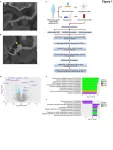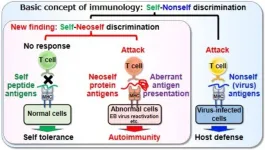(Press-News.org) A new study sheds light on a promising approach using machine learning to more effectively allocate medical treatments during a pandemic or any time there’s a shortage of therapeutics.
The findings, published today in JAMA Health Forum, found a significant reduction in expected hospitalizations when using machine learning to help distribute medication using the COVID-19 pandemic to test the model. The model proves to reduce hospitalizations relatively by about 27 percent compared to actual and observed care.
“During the pandemic, the healthcare system was at a breaking point and many health care facilities relied on a first-come, first-serve or a patient’s health history to implement who received treatments,” said the paper’s senior author Adit Ginde, MD, professor of emergency medicine at the University of Colorado Anschutz Medical Campus.
“However, these methods often don’t address the complex interactions that can occur in patients when taking medications to determine expected clinical effectiveness and may overlook patients who would benefit the most from treatment. We show that machine learning in these scenarios is a way to use real-time, real-world evidence to inform public health decision making,” Ginde adds.
In the study, the researchers showed that using machine learning that looks at how individual patients benefit differently from treatment can provide doctors, health systems and public health officials with more accurate information in real-time than traditional allocation score models. Mengli Xiao, PhD, assistant professor in Biostatistics and Informatics, developed the mAb allocation system based on machine learning.
“Existing allocation methods primarily target patients who have a high-risk profile for hospitalizations without treatments. They could overlook patients who benefit most from treatments. We developed a mAb allocation point system based on treatment effect heterogeneity estimates from machine learning. Our allocation prioritizes patient characteristics associated with large causal treatment effects, seeking to optimize overall treatment benefits when resources are limited” said Xiao, who is also faculty at the Center of Innovative Design and Analysis (CIDA).
Specifically, the researchers looked at the effectiveness of adding a novel Policy Learning Trees (PLTs)-based method for optimizing the allocation of COVID-19 neutralizing monoclonal antibodies (mAbs) during periods of resource constraint.
The PLT approach was designed to decide which treatments to assign to individuals in a way that maximizes the overall benefits for the population (ensuring those who are at the highest risk of hospitalization are sure to receive treatments, especially when treatment is scarce). This is done by taking into account how different factors affect the effectiveness of the treatment.
The researchers compared the machine learning approach with real-world decisions and a standard point allocation system used during the pandemic. They found the PLTs-based model demonstrated a significant reduction in expected hospitalizations compared to the observed allocation. This improvement also surpassed the performance of the Monoclonal Antibody Screening Score, which observes antibodies for diagnosis.
“Using an innovative approach like machine learning expands beyond crises like the COVID-19 pandemic and shows we can provide personalized public health decisions even when resources are limited in any scenario. To do so, though, it’s important that robust, real-time data platforms, like what we developed for this project, are implemented to provide data-driven decisions,” adds Ginde, a leader in the Colorado Clinical and Translational Sciences Institute at CU Anschutz.
The paper in JAMA Health Forum will be the 15th publication to come out of a project called Monoclonal Antibody (mAB) Colorado, which was funded by a grant from the National Institutes of Health (NIH) and National Center for Advancing Translational Sciences (NCATS). The project focused on doing the most good for the most people, using real world evidence for data-driven decisions during the COVID-19 pandemic.
The researchers hope this paper will encourage public health entities, policymakers and disaster management agencies to look into methods like machine learning to implement in case of a future public health crisis.
About the University of Colorado Anschutz Medical Campus
The University of Colorado Anschutz Medical Campus is a world-class medical destination at the forefront of transformative science, medicine, education and patient care. The campus encompasses the University of Colorado health professional schools, more than 60 centers and institutes, and two nationally ranked independent hospitals - UCHealth University of Colorado Hospital and Children's Hospital Colorado – which see more than 2 million adult and pediatric patient visits yearly. Innovative, interconnected and highly collaborative, the University of Colorado Anschutz Medical Campus delivers life-changing treatments, patient care and professional training and conducts world-renowned research fueled by $705 million in research grants. For more information, visit www.cuanschutz.edu.
END
Machine learning could help reduce hospitalizations by nearly 30% during a pandemic, study finds
New research shows machine learning can be more effective than current methods to distribute scarce treatments to patients most vulnerable during a public health crisis New research shows machine learning can be more effective than current methods to dist
2024-09-13
ELSE PRESS RELEASES FROM THIS DATE:
E-cigarette brands are skirting the rules about health warning labels on Instagram
2024-09-13
Island breeze, blue lagoon, dew drop—these aren’t the names of scented candles on display at your local home goods store. They’re flavors of synthetic nicotine used in e-cigarettes, often advertised with neon-electric colors and bright lettering to make them look like boxes of candy or fruit juice. But underneath all the flair, a specific label written clearly in black text on a white background is required by law to be there: a warning that says the product contains nicotine and that nicotine is an addictive substance.
Even though health warnings need to be written on physical products sold in stores ...
Scientists discover potential cause of an enigmatic vascular disease primarily impacting women
2024-09-13
Mount Sinai researchers have identified a key driver of a blood vessel disorder known as fibromuscular dysplasia (FMD) which affects up to five percent of the adult population and can lead to high blood pressure, heart attack, or stroke.
In a study published September 13 in Nature Cardiovascular Research, the team said changes in the gene UBR4 played an important role as a key driver of FMD. They suggested the discovery could be an important step toward developing a therapeutic approach for the disorder.
“Although fibromuscular dysplasia was first recognized more than 80 years ago, until now ...
Stimulant, antidepressant, and opioid telehealth prescription trends between 2019 and 2022
2024-09-13
About The Study: From 2019 to 2022, overall prescription volumes for stimulant and antidepressant medications increased, while prescription volume for opioids decreased. Concurrently, the proportion of telehealth prescriptions climbed across medications, increasing by a factor of 188 in opioids and more than 20 for antidepressants. These findings align with existing research highlighting the shift toward telehealth and the rise in stimulant and opioid telehealth prescribing during the pandemic. While in-person prescribing remains the most common, increasing telehealth ...
One-year weight reduction with semaglutide or liraglutide in clinical practice
2024-09-13
About The Study: In this retrospective cohort study of 3,389 patients with obesity, weight reduction at 1 year was associated with the medication’s active agent, its dosage, treatment indication, persistent medication coverage, and patient sex. Future research should focus on identifying the reasons for discontinuation of medication use and interventions aimed at improving long-term persistent coverage.
Corresponding Author: To contact the corresponding author, Hamlet Gasoyan, PhD, email gasoyah@ccf.org.
To access the embargoed study: Visit our For The Media ...
Adolescents and young adults’ sources of contraceptive information
2024-09-13
About The Study: This study’s results suggest discrepancies between preferred and actual sources of contraceptive information for assigned female at birth adolescents and young adults in the U.S. Findings underscore the role of clinicians in supporting informed contraceptive decision-making among adolescents and young adults. Clinicians were the most commonly preferred source, and receiving information from them was associated with having sufficient information to choose a contraceptive method; however, clinicians were the source with the largest discrepancy between preferred and actual use.
Corresponding Author: To contact the corresponding author, ...
Health warnings on Instagram advertisements for synthetic nicotine e-cigarettes and engagement
2024-09-13
About The Study: In this cross-sectional study of synthetic nicotine brand Instagram accounts, 87% of sampled posts did not adhere to FDA health warning requirements in tobacco promotions. Enforcement of FDA compliant health warnings on social media may reduce youth engagement with tobacco marketing.
Corresponding Author: To contact the corresponding author, Traci Hong, PhD, email tjhong@bu.edu.
To access the embargoed study: Visit our For The Media website at this link https://media.jamanetwork.com/
(doi:10.1001/jamanetworkopen.2024.34434)
Editor’s Note: Please see the article for additional information, including ...
Cleveland Clinic study identifies key factors that can impact long-term weight loss in patients with obesity who were prescribed GLP-1 RA medications
2024-09-13
UNDER EMBARGO Friday, September 13, 2024, 11 a.m. ET, CLEVELAND: A Cleveland Clinic study identified key factors that can impact the long-term weight loss of patients with obesity who were prescribed injectable semaglutide or liraglutide for the treatment of type 2 diabetes or obesity. The study was published in JAMA Network Open.
“In patients with obesity who were prescribed semaglutide or liraglutide, we found that long-term weight reduction varied significantly based on the medication’s active agent, treatment indication, dosage and persistence with the medication,” said Hamlet Gasoyan, Ph.D., lead author of the study ...
Neoself-antigens induce autoimmunity in lupus
2024-09-13
Osaka, Japan – Autoimmune diseases are widespread and notoriously difficult to treat. In part, this is because why the immune system attacks its own tissues in patients with these conditions remains poorly understood.
In a study recently published in Cell, researchers from Osaka University have revealed that the body’s own proteins with unusual structure trigger immune cells to unleash a wave of inflammation that leads to autoimmunity.
Autoimmune diseases develop when the body’s immune system mistakenly attacks its own tissues instead of fighting off foreign invaders like bacteria or viruses. However, it has long been a mystery why this happens, as ...
New therapy that targets and destroys tau tangles is a promising future Alzheimer’s disease treatment
2024-09-13
Scientists have developed new potential therapies that selectively remove aggregated tau proteins, which are associated with Alzheimer’s disease, and improve symptoms of neurodegeneration in mice.
The team of scientists, from the Medical Research Council Laboratory of Molecular Biology (MRC LMB) in Cambridge, UK, and the UK Dementia Research Institute (UK DRI) at the University of Cambridge, say this promising approach could also be applied in future to other brain disorders driven by protein aggregation inside cells, ...
Study finds ‘supercharging’ T cells with mitochondria enhances their antitumor activity
2024-09-13
Fighting cancer is exhausting for T cells. Hostile tumor microenvironments can drain their mitochondrial activity, leading to a condition known as T cell exhaustion. This phenomenon also hinders adoptive cell therapies, in which healthy, tumor-targeting T cells are infused into patients with cancer. A novel method to boost mitochondrial activity and charge up T cells is needed.
Investigators from Brigham and Women’s Hospital, a founding member of the Mass General Brigham healthcare system, in collaboration with colleagues at Leibniz Institute for Immunotherapy in Germany, have developed a way to “supercharge” T cells by supplying them with extra mitochondria ...
LAST 30 PRESS RELEASES:
Science reveals why you can’t resist a snack – even when you’re full
Kidney cancer study finds belzutifan plus pembrolizumab post-surgery helps patients at high risk for relapse stay cancer-free longer
Alkali cation effects in electrochemical carbon dioxide reduction
Test platforms for charging wireless cars now fit on a bench
$3 million NIH grant funds national study of Medicare Advantage’s benefit expansion into social supports
Amplified Sciences achieves CAP accreditation for cutting-edge diagnostic lab
Fred Hutch announces 12 recipients of the annual Harold M. Weintraub Graduate Student Award
Native forest litter helps rebuild soil life in post-mining landscapes
Mountain soils in arid regions may emit more greenhouse gas as climate shifts, new study finds
Pairing biochar with other soil amendments could unlock stronger gains in soil health
Why do we get a skip in our step when we’re happy? Thank dopamine
UC Irvine scientists uncover cellular mechanism behind muscle repair
Platform to map living brain noninvasively takes next big step
Stress-testing the Cascadia Subduction Zone reveals variability that could impact how earthquakes spread
We may be underestimating the true carbon cost of northern wildfires
Blood test predicts which bladder cancer patients may safely skip surgery
Kennesaw State's Vijay Anand honored as National Academy of Inventors Senior Member
Recovery from whaling reveals the role of age in Humpback reproduction
Can the canny tick help prevent disease like MS and cancer?
Newcomer children show lower rates of emergency department use for non‑urgent conditions, study finds
Cognitive and neuropsychiatric function in former American football players
From trash to climate tech: rubber gloves find new life as carbon capturers materials
A step towards needed treatments for hantaviruses in new molecular map
Boys are more motivated, while girls are more compassionate?
Study identifies opposing roles for IL6 and IL6R in long-term mortality
AI accurately spots medical disorder from privacy-conscious hand images
Transient Pauli blocking for broadband ultrafast optical switching
Political polarization can spur CO2 emissions, stymie climate action
Researchers develop new strategy for improving inverted perovskite solar cells
Yes! The role of YAP and CTGF as potential therapeutic targets for preventing severe liver disease
[Press-News.org] Machine learning could help reduce hospitalizations by nearly 30% during a pandemic, study findsNew research shows machine learning can be more effective than current methods to distribute scarce treatments to patients most vulnerable during a public health crisis New research shows machine learning can be more effective than current methods to dist



